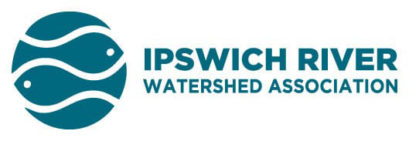Support Our Cities and Towns
1. Follow the Recipe for Water Conservation
With limited water supplies and growing impacts from drought, how can our communities work together to meet current and future water needs? There’s a lot we can do. By convincing your local officials to take these steps, we can both reduce current water use and provide for future needs. Below are three steps every City or Town can take. The Ipswich River Team is ready to assist! Together, we can protect the future of our water and communities.
Key Ingredients of the Recipe
2. Review Local Bylaws and Regulations
Reviewing local bylaws is our key to the future. Several towns are taking this important step to help plan for the future. This year the Essex County Community Foundation, through its new Land and Environment Initiative (ECLEI) is funding free bylaw review assistance for Greenscapes member towns in Essex County. Our first webinar will be taking place in May, 2021. Interested in seeing your town on the list? Please contact our Director of Policy and Planning at [email protected].
3. Join your Regional Resiliency Partnership
Across the Commonwealth of Massachusetts, regional resiliency partnerships have formed at the watershed level to help our communities craft regional solutions. On the North Shore, one coalition unites the 29 cities and towns within the Parker, Ipswich or Essex River watersheds. Known as PIE-Rivers, the partnership that began in 2011 continues to evolve and meet new climate change and municipal vulnerability challenges . Does your Town have a need for a project related to Municipal Vulnerability, Coastal Resiliency, or Drinking Water Protection? We can help you identify PIE-Rivers Partners that can help.
State Policy
1. Fix Our State Regulations
Conditions on Water Registrations
The State’s current water law, the Water Management Act (WMA), was enacted in 1986, a far different time. Climate change was barely on the radar. Existing large water users were granted unconditioned registrations based on average annual use, while other users were exempted entirely even during drought. Thankfully, the Massachusetts Department of Environmental Protection has already announced its intention to draft new regulations this summer that would get things moving in the right direction. This is a small but critical improvement to state water policy. Want to help? Our partners at American Rivers have created an easy way for you to let our State Officials know you support them.

2. Pass the Drought Bill
The Drought Bill, HD.1635 (Full name: An Act relative to maintaining adequate water supplies through effective drought management), is sponsored by Senator Jamie Eldridge and Representative Carolyn Dykema. This bill would give the Commonwealth the authority to restrict non-essential outdoor watering during droughts, ensuring our water supply can sustain public health and our environment. Our partners at the Massachusetts Rivers Alliance are here to help! Sign up for their newsletter for updates.
3. Increase Water and Climate Resiliency Policy
Integrate Water and Climate Policy. Massachusetts is already a leader on climate resiliency. But since the 1980s, our water supplies have been exempt from other rules and regulations. After two severe droughts in the last five years, it is time for state leaders to take action. Let them know you support adding water supply considerations into our climate planning efforts. Ipswich River Watershed Association and our many partners of the Mass Rivers Alliance are already at the table. Join your local watershed association today and make your voices heard! For more info visit https://www.massriversalliance.org/.



